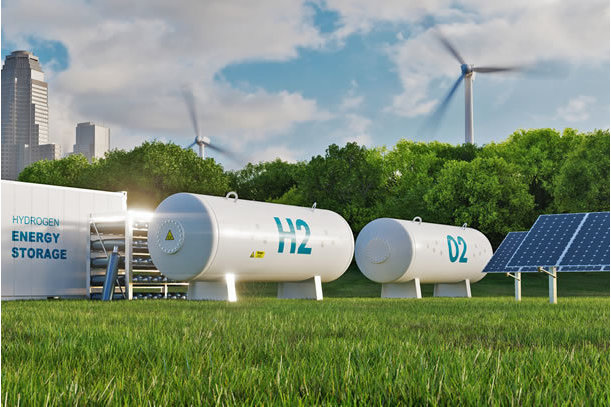Latest News
New study confirms EUR 1 trillion Africa’s green hydrogen potential

News Highlight
The report, “Africa’s Extraordinary Green Hydrogen Potential,” highlights the benefits of harnessing solar power to create green hydrogen in four African hubs: Mauritania, Morocco, southern Africa and Egypt.
European Investment Bank, International Solar Alliance, and the African Union have unveiled a new study into Africa’s green hydrogen potential.
The report, “Africa’s Extraordinary Green Hydrogen Potential,” highlights the benefits of harnessing solar power to create green hydrogen in four African hubs: Mauritania, Morocco, southern Africa and Egypt. According to the report, green hydrogen is economically viable at EUR 2/kg and can accelerate low-carbon economic growth across the continent and reduce emissions by 40 percent.
Harnessing Africa’s solar energy to produce 50 million tons of green hydrogen a year by 2035 can help secure global energy supply, create jobs, decarbonize heavy industry, enhance global competitiveness, and transform access to clean water and sustainable energy, according to the report.
The study notes that solar power green hydrogen is cheaper than traditional fossil fuel energy, and that EUR 1-trillion green hydrogen investment can deliver the equivalent of more than one third of Africa’s current energy consumption, boost GDP, improve clean water supply and empower communities.
Related News
Latest Blogs
- How far Nigeria’s maritime has come
- The curious case of Nigeria’s bans
- Why Africa will be missing on ‘Globalisation 3.0’
- The Nigerian high-interest-rate trap
- How Tinubu is ensuring equitable access to public services
Most Popular News
- Artificial intelligence can help to reduce youth unemployment in Africa – ...
- New report offers insights for successful private equity exits in Africa
- User account leaks fall in Nigeria, globally
- AWIEF 2025 mobilising stakeholders to recommit to gender equity
- Finnfund issues EUR 200 mn multi-tranche green and sustainable bonds
- Global financial stability risk high after success against inflation – IMF






